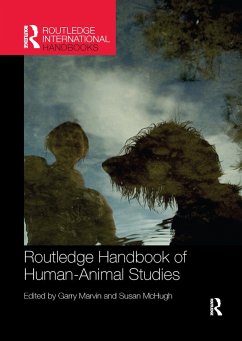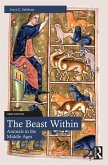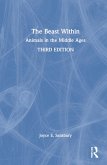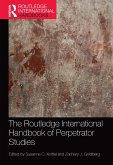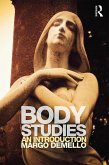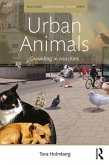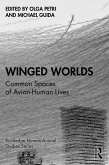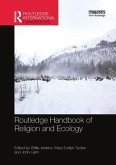Human-animal studies is an academic field that has grown exponentially over the past decade. It explores the whys, hows, and whats of human-animal relations: why animals are represented and configured in different ways in human cultures and societies around the world; how they are imagined, experienced, and given significance; what these relationships might signify about being human; and what about these relationships might be improved for the sake of the individuals as well as the communities concerned.
The Routledge Handbook of Human-Animal Studies presents a collection of original essays from artists and scholars who have established themselves internationally on the basis of specific and significant new contributions to human-animal studies.
This international, interdisciplinary handbook will be of interest to students and scholars of human-animal studies, sociology, anthropology, biology, environmental studies, geography, cultural studies, history, philosophy, media studies, gender studies, literature, psychology, ethology, and visual studies.
The Routledge Handbook of Human-Animal Studies presents a collection of original essays from artists and scholars who have established themselves internationally on the basis of specific and significant new contributions to human-animal studies.
This international, interdisciplinary handbook will be of interest to students and scholars of human-animal studies, sociology, anthropology, biology, environmental studies, geography, cultural studies, history, philosophy, media studies, gender studies, literature, psychology, ethology, and visual studies.
A new and necessary survey of a rapidly evolving field, this marvellous collection succeeds in being inviting as well as authoritative; taking on the challenge of reconceptualising the wild, the domesticated and the feral, these exceptional essays amply demonstrate Marvin and McHugh's conviction that the question of how we live with animals is fundamental to how we live with ourselves. - Philip Howell, Department of Geography, University of Cambridge
Human-animal studies is only a few decades old (and so, born yesterday in academic terms), but in that brief span it has attracted scholars from across the humanities, the social sciences, and the arts. Garry Marvin and Susan McHugh have produced a collection that demonstrates the striking disciplinary reach and methodological variety of this innovative field. - Harriet Ritvo, Arthur J. Conner Professor of History, MIT
"The Handbook of Human-Animal Studies is both a great read and a provocation to rendering each other capable of knowing entangled human and animal worldings better. The diverse essays are unsettling and enticing. Feral protagonists in contemporary South African novels, mourning Hawaiian crows and shared grief in the face of extinction, commercial wild meat and green exterminism in New Zealand, Sami reindeer and their herders, ancient dogs, crowds of Swedish cats in nonconforming homes, Arabian babblers reshaping their scientists, laboratory and other rats escaping more than one kind of maze, and many more human and non-human critters of temporally deep and spatially differentiated worlds: All of these both confront the arrogance of human exceptionalism and nurture the perceptual and analytical skills to inhabit bumptious and challenging human-animal studies. This Handbook is an ambitious, rich webbing of essays in an emergent, multi-dimensional niche-space of contemporary trans-disciplinary studies; as the editors put it in their seductive intro
Human-animal studies is only a few decades old (and so, born yesterday in academic terms), but in that brief span it has attracted scholars from across the humanities, the social sciences, and the arts. Garry Marvin and Susan McHugh have produced a collection that demonstrates the striking disciplinary reach and methodological variety of this innovative field. - Harriet Ritvo, Arthur J. Conner Professor of History, MIT
"The Handbook of Human-Animal Studies is both a great read and a provocation to rendering each other capable of knowing entangled human and animal worldings better. The diverse essays are unsettling and enticing. Feral protagonists in contemporary South African novels, mourning Hawaiian crows and shared grief in the face of extinction, commercial wild meat and green exterminism in New Zealand, Sami reindeer and their herders, ancient dogs, crowds of Swedish cats in nonconforming homes, Arabian babblers reshaping their scientists, laboratory and other rats escaping more than one kind of maze, and many more human and non-human critters of temporally deep and spatially differentiated worlds: All of these both confront the arrogance of human exceptionalism and nurture the perceptual and analytical skills to inhabit bumptious and challenging human-animal studies. This Handbook is an ambitious, rich webbing of essays in an emergent, multi-dimensional niche-space of contemporary trans-disciplinary studies; as the editors put it in their seductive intro

